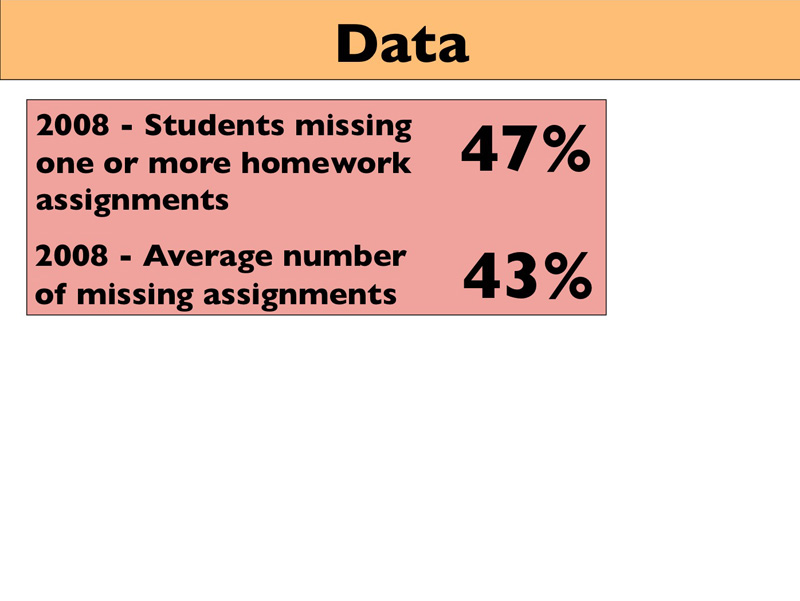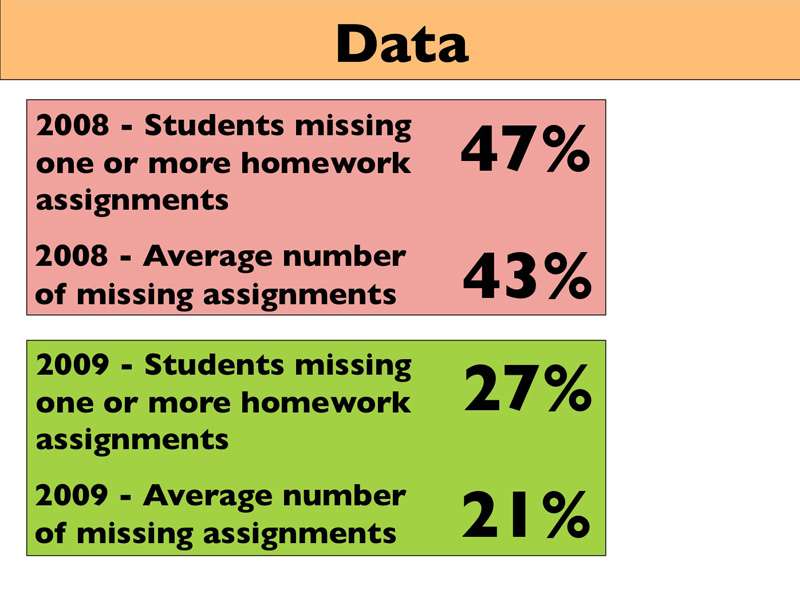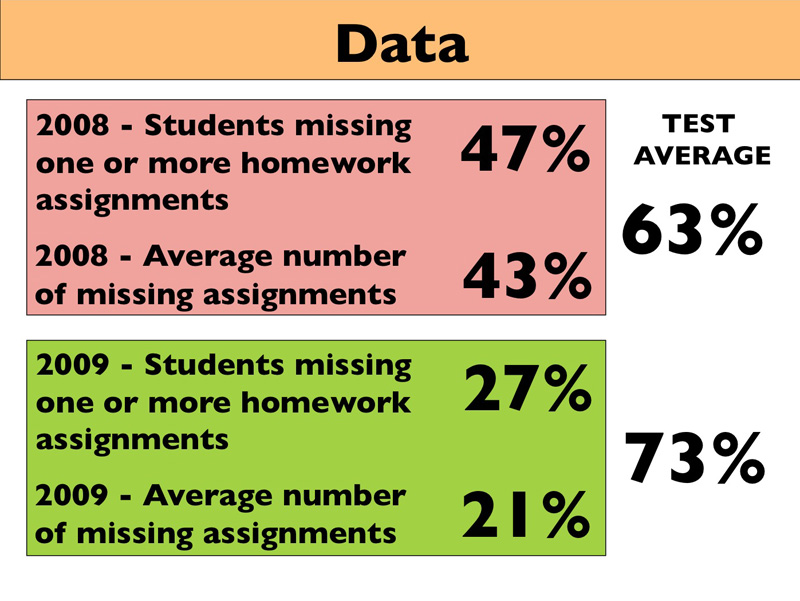“Just In Time” Learning
by Richard White
2010-12-06
“‘Hybrid classroom?’ Seriously? What effect could Internet use possibly have on student learning in my classes?”
I’m SO glad you asked. I have data on that. I’m in the process of running an experiment.
I teach physics, a subject that has some reputation as being a little tricky to understand sometimes. Typically, teaching physics works something like this:
- I present material in class: discussions, lectures, demonstrations, sample problems.
- Students go home, try to do assigned homework problems, and get stuck.
- Students come back the next day with questions, and I spend time in class helping them clear up their misunderstandings.
It’s a time-honored process, and one that works on some levels. “Struggling with the material” is something that all learning requires, as each of us figure out how to fit new ideas into our previous understanding of the world. Constructing that new knowledge requires effort, and it’s absolutely part of my job to assist students in that process.
After 15 years of teaching physics, thoughI came to realize that there was a problem with the current homework system. Ater 15 years of teaching physics, I figured out that often, students were getting waylaid by relatively trivial difficulties, usually a problem-solving technique, or a strategy, or a “trick” that we’d discussed in class and that they hadn’t quite learned how to apply. It wasn’t that they had absolutely no idea of how to solve the problem—they just needed a little push, a little hint on what to do next, and the answers to the odd-numbered problems in the back of the book weren’t enough.
I had clear data that the students were getting stuck, based on the number of students missing at least one assignment, and—for those students—the number of homework assignments they were missing.
I made what I thought was a generous offer: the homework solutions were available in my office so that students could come in during office hours to take a look at them… but that didn’t really help them at night. At night was when they were working on the problems. At night was when they needed the help.
So I made the solutions available online.
It was a simple step, really, and I fully expected that a lot of the problems with “incomplete and missing homework assignments” would go away. I made sure to communicate the fact that these solutions were available for students to use in helping their progress after they’d attempted a problem; these were not to be copied. But there was that risk.
I’d hoped that the homework scores would improve, and improve they did:
That’s not much of a success story there, of course: “give students who haven’t been turning in homework the answers, and they’ll turn in more homework.” Great headline.
Here’s where things get interesting, though. Students both years took the unit test, with the following results:
Test scores went UP. Way up. On unassisted assessments of their learning, students demonstrated that their understanding of the material had improved by a whopping 10%, because (I believe) they were able to get some assistance with their homework when they were doing it, and not hours or days after the fact.
Of course, it’s well-known that the WWW is a great place for a motivated student to explore and learn. See the Wall Street Journal’s Turning Kids From India’s Slums Into Autodidacts for some interesting examples of this. Money quote:
Education, though, feels like one of those things that has to be top-down: There has to be a teacher and a taught. But plenty of people educate themselves. Is it possible for everybody to be an autodidact, now that knowledge is so accessible online?
The premise of the article is so radical that most classroom teachers may not feel that it has any bearing on what we do day-to-day. But my ongoing experiment has convinced me giving people access to new tools to guide their studies—even something as mundane as homework solutions— can have a powerful effect on the learning experience.
There are other things we can do as well. More about that next week.


